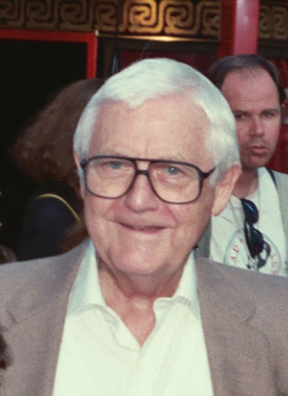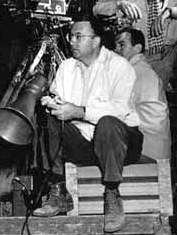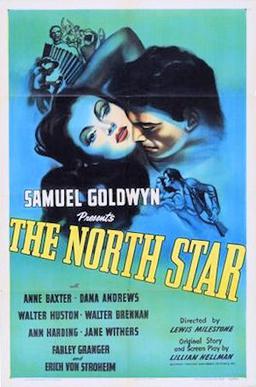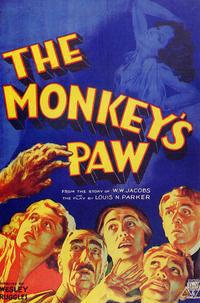Related Research Articles

David O. Selznick was an American film producer, screenwriter and film studio executive who produced Gone with the Wind (1939) and Rebecca (1940), both of which earned him an Academy Award for Best Picture. He also won the Irving Thalberg Award at the 12th Academy Awards, Hollywood's top honor for a producer, in recognition of his shepherding Gone with the Wind through a long and troubled production and into a record-breaking blockbuster.

Robert Earl Wise was an American filmmaker. He won the Academy Awards for Best Director and Best Picture for his musical films West Side Story (1961) and The Sound of Music (1965). He was also nominated for Best Film Editing for Citizen Kane (1941) and directed and produced The Sand Pebbles (1966), which was nominated for Best Picture.

Joan de Beauvoir de Havilland, known professionally as Joan Fontaine, was an English-American actress best known for her roles in Hollywood films during the Golden Age of Hollywood. Fontaine appeared in more than 45 films in a career that spanned five decades. She was the younger sister of actress Olivia de Havilland. Their rivalry was well-documented in the media at the height of Fontaine's career.

Major film studios are production and distribution companies that release a substantial number of films annually and consistently command a significant share of box office revenue in a given market. In the American and international markets, the major film studios, often known simply as the majors or the Big Five studios, are commonly regarded as the five diversified media conglomerates whose various film production and distribution subsidiaries collectively command approximately 80 to 85% of U.S. box office revenue. The term may also be applied more specifically to the primary motion picture business subsidiary of each respective conglomerate.

Isadore "Dore" Schary was an American playwright, director, and producer for the stage and a prolific screenwriter and producer of motion pictures. He directed one feature film, Act One, the film biography of his friend, playwright and theatre director Moss Hart. He became head of production at Metro-Goldwyn-Mayer and replaced Louis B. Mayer as president of the studio in 1951.
Turner Entertainment Company is an American multimedia company founded by Ted Turner on August 2, 1986. Purchased by Time Warner Entertainment on October 10, 1996, as part of its acquisition of Turner Broadcasting System (TBS), the company was largely responsible for overseeing the TBS library for worldwide distribution. In recent years, this role has largely been limited to being the copyright holder, as it has become an in-name-only subsidiary of Warner Bros., which currently administers their library.

The Sword and the Rose is a family/adventure film produced by Perce Pearce and Walt Disney and directed by Ken Annakin. The film features the story of Mary Tudor, a younger sister of Henry VIII of England.

Jacques Tourneur was a French-American filmmaker, active during the Golden Age of Hollywood. He was known as an auteur of stylish and atmospheric genre films, many of them for RKO Pictures, including the horror films Cat People, I Walked with a Zombie, and The Leopard Man, and the classic film noir Out of the Past. He is also known for directing Night of the Demon, which was released by Columbia Pictures.

Robert Bushnell Ryan was an American actor and activist. Known for his portrayals of hardened cops and ruthless villains, Ryan performed for over three decades. He was nominated for the Academy Award for Best Supporting Actor for his role in the film noir drama Crossfire (1947).

Val Lewton was a Ukrainian-American novelist, film producer and screenwriter best known for a string of low-budget horror films he produced for RKO Pictures in the 1940s. His son, also named Val Lewton, was a painter and exhibition designer.
A studio system is a method of filmmaking wherein the production and distribution of films is dominated by a small number of large movie studios. It is most often used in reference to Hollywood motion picture studios during the early years of the Golden Age of Hollywood from 1927 to 1948, wherein studios produced films primarily on their own filmmaking lots with creative personnel under often long-term contract, and dominated exhibition through vertical integration, i.e., the ownership or effective control of distributors and exhibition, guaranteeing additional sales of films through manipulative booking techniques such as block booking.

Pandro Samuel Berman, also known as Pan Berman, was an American film producer.
Charles Schnee was an American screenwriter and film producer. He wrote the scripts for the Westerns Red River (1948) and The Furies (1950), the social melodrama They Live by Night (1949), and the cynical Hollywood saga The Bad and the Beautiful (1952), for which he won an Academy Award.

The North Star is a 1943 pro-resistance war film starring Anne Baxter, Dana Andrews, Walter Huston, Walter Brennan and Erich von Stroheim It was produced by Samuel Goldwyn Productions and distributed by RKO Radio Pictures. It was directed by Lewis Milestone, written by Lillian Hellman and featured production design by William Cameron Menzies. The music was written by Aaron Copland, the lyrics by Ira Gershwin, and the cinematography by James Wong Howe. The film also marked the debut of Farley Granger.

Forever and a Day is a 1943 American drama film, a collaborative effort employing seven directors/producers and 22 writers, with a large cast of well-known stars.

Saturday Island is a 1952 British south seas adventure romance film directed by Stuart Heisler and starring Linda Darnell, Tab Hunter, and Donald Gray. The film was produced by independent company Coronado Productions with the financial backing of RKO Pictures who distributed it in Britain. It was released in America by United Artists under the alternative title Island of Desire.

Your Witness is a 1950 British drama film directed by and starring Robert Montgomery, Leslie Banks, Felix Aylmer and Andrew Cruickshank. It was released in the U.S. as Eye Witness.

The Plough and the Stars is a 1937 American drama film directed by John Ford and starring Barbara Stanwyck and Preston Foster. It is based on the play of the same name written by Seán O'Casey.

The Monkey's Paw is a 1933 American pre-Code horror film co-directed by Ernest B. Schoedsack (prologue) and Wesley Ruggles, based on the short story "The Monkey's Paw" (1902) by W. W. Jacobs. It tells of a family who obtains a cursed monkey paw that grants three wishes. Because the film was shorter than anticipated after the initial shooting, the producers added a prologue. Though the film was not widely viewed upon its release in the United States, it was well-liked in England. Critical reviews were mixed, ranging from an appreciation of its suspense to a dislike of its plot. It has been considered a lost film, but parts of it were rediscovered in 2016.

RKO Radio Pictures Inc., commonly known as RKO Pictures or simply RKO, was an American film production and distribution company, one of the "Big Five" film studios of Hollywood's Golden Age. The business was formed after the Keith-Albee-Orpheum theater chain and Joseph P. Kennedy's Film Booking Offices of America studio were brought together under the control of the Radio Corporation of America (RCA) in October 1928. RCA executive David Sarnoff engineered the merger to create a market for the company's sound-on-film technology, RCA Photophone, and in early 1929 production began under the RKO name. Two years later, another Kennedy concern, the Pathé studio, was folded into the operation. By the mid-1940s, RKO was controlled by investor Floyd Odlum.
References
- ↑ "Rose finalizing new Brit pic co". Variety. 9 March 1949. p. 15.
- ↑ Harper, Sue; Porter, Vincent (2003). British cinema of the 1950s : the decline of deference. Oxford University Press. p. 122-123.